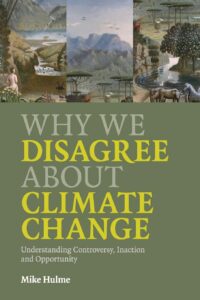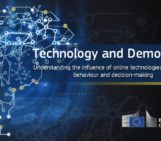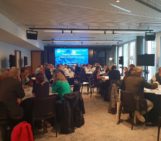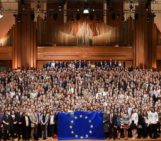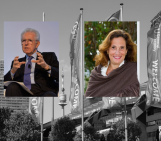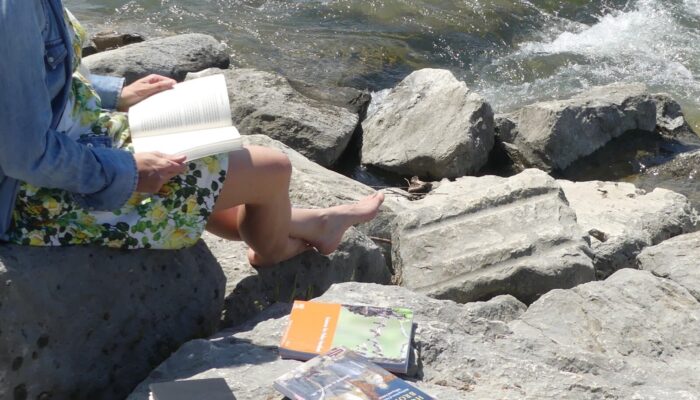
As the days grow warmer and you start to think about your summer holidays or field work, you might also be looking for a book or two to help you unwind! Whether you’re lounging by the pool, enjoying a picnic in the park, or resting after a long day in the field, summer is the perfect backdrop for getting lost in a good read. This month’s blog post highlights several books that have been recommended by experts working on the science-policy interface that provide insights into policymaking and can help researchers have a policy impact.
A reporter’s Guide to the EU
By Sigrid Melchior and Stephen Gardner
Recommended by Mario Scharfbillig, Science Policy Advisor for the Joint Research Centre of the European Commission.
Written from the perspective of someone who tries to find the juicy bits for informing citizens as an honest journalist, A reporter’s Guide to the EU is a useful resource for everyone who wants to know about the famous “Brussels Bubble” and how the EU really works. Mario provides his personal opinion on the appeal of the book,
“It gives an interesting introduction to policymaking at the EU level but makes it very human. What do policymakers care about in the Commission, the Council, or the Parliament and what is the best way to reach them?”
He continues, stating that “For researchers interested to have impact with their research, or get ideas for relevant research questions there is certainly much to learn in an easy read”.
Why we disagree about Climate Change
By Mike Hulme
Recommended by
When we’re engaging with policymaking, it’s important to remember that decision-makers need to consider a lot more than just science when creating and voting on legislation.
Eric explains how his recommendation emphasises this point, “Why we disagree about Climate Change provides a unique opportunity to help broaden the challenges associated with the Climate Change crisis by clearly distinguishing ‘climate change’ as a geophysical issue from ‘climate change’ as a social and political issue. It convincingly demonstrates the need to embrace the diversity of perspectives, worldviews and values. Otherwise, too narrow a view of the challenge we face will lead to fear, anxiety, anger and backlash.” Eric goes on to explain that this book provides a background to Mike Hulme’s latest book, Climate Change Isn’t Everything.
Parlement
by Noé Debré co-produced in France, Belgium and Germany
Recommended by Alessandro Allegra, Policy Assistant to the Deputy Director-General for Research & Innovation, European Commission
Not only is summer a great time for reading, but it’s also a fantastic time to fully switch off and find a new movie or a television series! Alessandro recommends that researchers tune into Parlement, a satire that recounts the journey of a young French parliamentary assistant, who arrives for his first day in Brussels. Although the series is a comedy, viewers get to learn about the various processes and considerations that Members of the European Parliament (and their assistants) face through the protagonists many adventures and misadventures.
Losing Earth: The Decade We Could Have Stopped Climate Change
By Nathaniel Rich
Recommended by Öykü Koç, PhD student at Politecnico di Milano and Policy Officer for the EGU Geodesy Division
Losing Earth: The Decade We Could Have Stopped Climate Change provides a detailed overview of the crucial decade between 1979 and 1989 when we had a real chance to take action and stopped Climate Change but ultimately failed. Öykü explains, “Nathaniel Rich tells us how scientists, with the support of activists, brought attention to the urgent issue of Climate Change, only to see their efforts crushed by politicians and the powerful lobbying of fossil fuel companies.” She continues,
If you’re interested in policy but aren’t quite sure how it works, “Losing Earth” by Nathaniel Rich is a compelling place to start. It reads like a true crime story, highlighting the importance of including scientists in policymaking and effectively communicating complex scientific concepts to policymakers.
She concludes, “It was the first book that really got me into policy, so I would recommend this book to those who need that initial push. If you read it and want to discuss it, you can join us on the reading group channel of the EGU Division Policy Officers & Points of Contact Slack Group.”
The Dispossessed
by Ursula Le Guin
Recommended by Toby Wardman, SAPEA head of communications for the Scientific Advice Mechanism to the European Commission
It isn’t just a political story, but also a fascinating study of a scientist who finds himself completely at sea in a political world he doesn’t understand. His naïveté gradually ebbs away as the story progresses.
Not only does the book touch on science-policy issues and themes, but Toby also emphases that it’s also “one of the best and most subtly written books” he’s ever read – making it the perfect summer read!
Delivering a climate neutral Europe
By Jos Delbeke
Recommended by Philippe Tulkens, Head of Unit, climate and planetary boundaries, Research and Innovation Directorate General at European Commission
Delivering a Climate Neutral Europe summarises the achievements of 25 years of EU Climate Policy and emphasis the achievements of the European Green Deal. The rate at which Climate Change and biodiversity loss is impacting our planet is scary and it can be easy to feel disheartened at our progress. However, we often don’t consider the steps and milestones that have already been taken or reached through effective policy processes. This book not only sheds light on these decisions but also the climate issues on the table of policy makers in the next European policy cycle 2024–2029. This can be incredibly useful for researchers who are hoping to engage with these upcoming policy decision. Philippe emphaises that “Implementing the European Green Deal will be challenging” but researchers are encouraged to engage in policy processes especially through organisations and unions like the EGU!
Factfulness: Ten Reasons We’re Wrong About the World – and Why Things Are Better Than You Think
By Hans Rosling
Recommended by Hazel Gibson, Head of Communications at the European Geosciences Union
In the current world of science communication and politics it can be easy to feel depressed about the state of the world, and think that actually, everything is getting worse. Hazel explains that, “In Factfulness: Ten 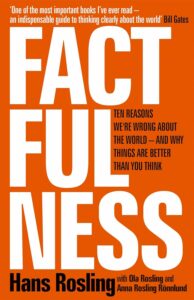 Reasons We’re Wrong About the World – and Why Things Are Better Than You Think by Hans Rosling and his children Anna and Ola, this doom-laden vision of the world is challenged; not just by data showing the incredible progress that global society has made in terms of human rights, eradication of poverty, tackling of Climate Change and more, but also by valuable explanations of the way that our processing of information often leads us down the path to despair.” She elaborates,
Reasons We’re Wrong About the World – and Why Things Are Better Than You Think by Hans Rosling and his children Anna and Ola, this doom-laden vision of the world is challenged; not just by data showing the incredible progress that global society has made in terms of human rights, eradication of poverty, tackling of Climate Change and more, but also by valuable explanations of the way that our processing of information often leads us down the path to despair.” She elaborates,
While not discounting the work that still needs to be done, Factfulness is a supportive safety line for everyone climbing the cliff face of science communication and politics.
Hazel concludes, that this is a great read for those who “need to be reminded that we can work together for good, and that, actually, you are making things better”.
The future we choose
By Christiana Figueres and Tom Rivett-Carnac
Recommended by Sarah Connors, Climate Applications Scientist at the European Space Agency
In The future we choose: Surviving the climate crisis, two possible scenarios for our planet are described: one where life in 2050 suffers from failing to meet the Paris Agreement’s climate targets, and another where we thrive in a regenerative, net-zero emissions world. The authors outline our options and emphasises the actions that governments, corporations, and individuals must take to prevent disaster. Sarah particularly recommends this book as it has helped remind her why its important to “keep and positive and determined outlook”.
“Anger that sinks into despair is powerless to make a change. Anger that evolves into conviction is unstoppable.”
Sarah particularly recommends this book as it has helped remind her why its important to “keep and positive and determined outlook”.
An incomplete list…
Please keep in mind that this is just a shortlist of ‘science for policy’ literature! I’m sure many of you have your own favourite books (or media) that you would like to recommend to others! Feel free to drop the in the comment section below or join the “reading group” channel in the EGU Division Policy Officers & Points of Contact Slack Group.

